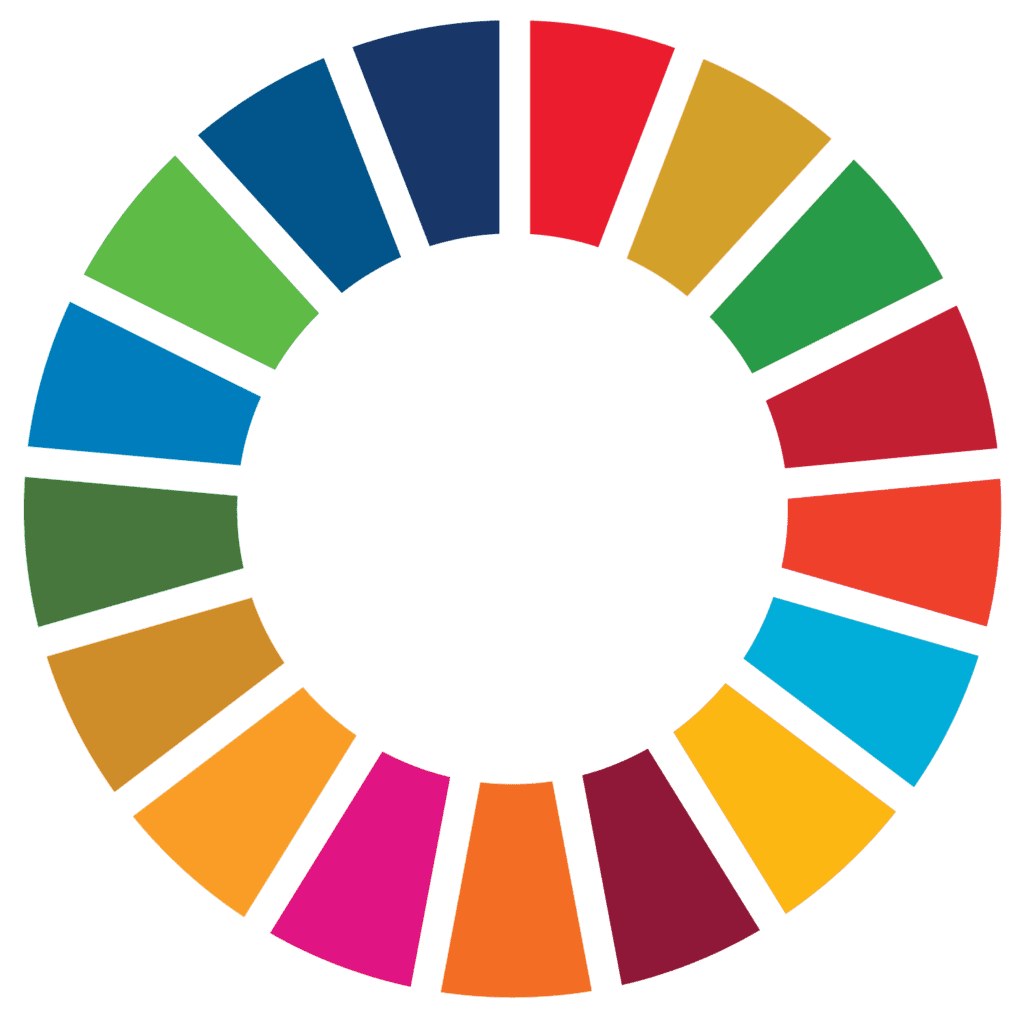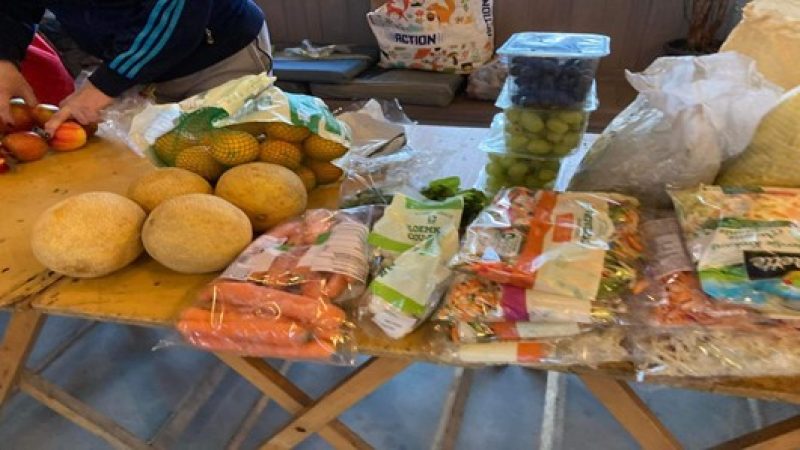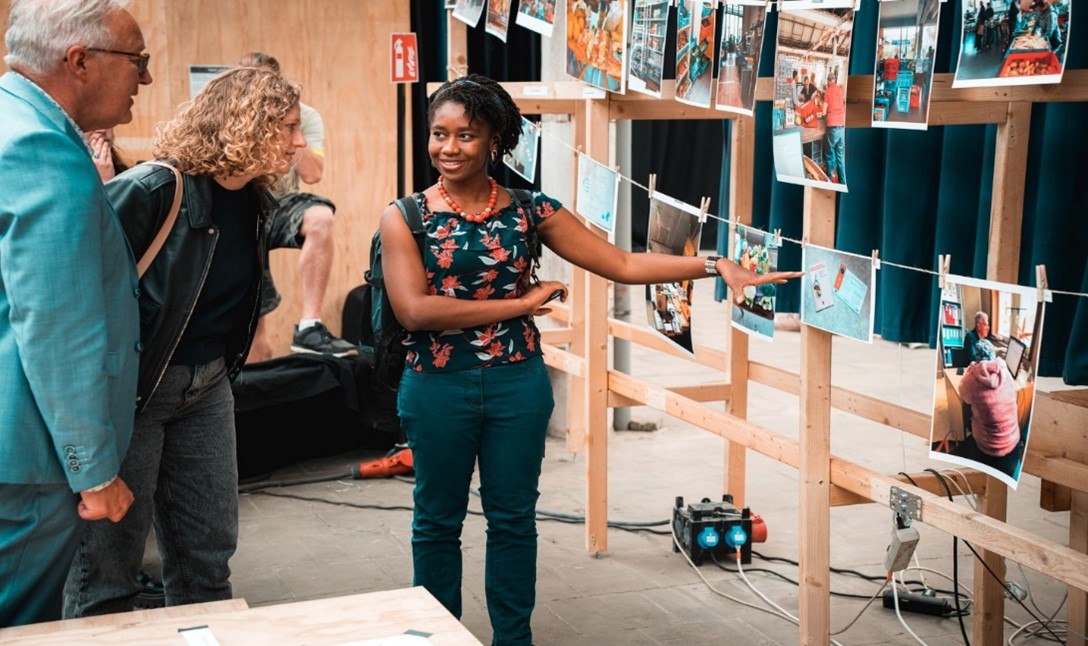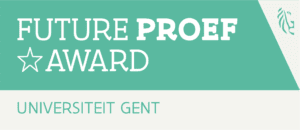Beyond Food Banks: A Call for Sustainable Solutions to Food Poverty


The Reality of food poverty in Ghent
What does it mean to face food poverty? Food poverty means the inability to access enough nutrient-rich food or facing uncertainty on whether you will be able to do so. Recent statistics from 2018 show that over 55,000 people in Ghent are struggling to make ends meet. Forty thousand are at risk of falling into poverty. Many of these people are likely facing food insecurity or are forced to rely on emergency food assistance, often through the aided by the Openbaar centrum voor maatschappelijk welzijn (OCMW).
The coexistence of extreme food poverty and hunger alongside rampant food waste is without a doubt one of the most serious problems confronting our wealthy, modern societies. As a result, there is a popular argument in favor of feeding food waste or surplus to the poor rather than disposing of it in landfills. In fact, this was the impetus behind the creation of Foodsavers Gent, a logistical distribution network that gathers near-expired or expired but still safe to consume items from supermarkets and distributes them to food support organizations serving people in need. However, this straightforward solution leaves out a crucial question: why shouldn’t people in poverty be able to shop for food like everyone else?
Food banks: obstacle or solution?
In Ghent, numerous organizations provide food support to people in poverty. These organizations tend to be dependent on contributions from various entities such as businesses, grocery stores, restaurants, schools, churches, and other organizations. Many are members of the poverty organization networks KRAS and, the more recently created, Samen Solidair.
Food support appears to be a win-win solution for everyone. From an ecological standpoint, there is a prevalent argument that food, which would otherwise be discarded in landfills, is now being "rescued" and can be utilized to alleviate hunger among the population. At the economic level, businesses have the capacity to achieve cost savings and reduce waste generation. From a social perspective, food support organizations might play a role in addressing food insecurity by effectively providing sustenance to a substantial population, thus enabling individuals to allocate their attention elsewhere. However, what transpires when we look deeper?
First, it is evident that food support does not challenge the issue of overproduction in our society, but rather perpetuates it. Food charities have effectively reduced the cost of waste management for supermarket chains. Additionally, these chains can use their charity contributions as a marketing tactic and a way to reduce their tax obligations. However, the answer to solving food poverty is not to reward companies for their overproduction but rather to raise the income of the poor.
 Foto: Pete Linforth via Pixabay
Foto: Pete Linforth via Pixabay
Secondly, the food supply within food banks is unreliable and fresh foods are not always available. Moreover, most food banks use a referral system that asks clients to prove that they are in need before they can receive a food parcel. These food parcels, in turn, are sufficient to provide a relief from severe hunger but do not guarantee food security. It is also expected that users will not express preferences and will display gratitude when dealing with volunteers, since they are getting a "gift". Thus, food bank users have reported feeling shame when accessing these emergency food services, particularly when doing so for the first time.
Finally, if we only deal with food poverty through charity, we might make it seem like a private issue instead of noting the need for the government and the public to get involved. Taking these problems into account, we can say that food donation is not a sustainable answer to either food waste or food poverty.
The right to food as a more sustainable approach
A right-to-food approach does not imply that the government should give everyone free food. In fact, food assistance should only be a last resort and specifically target the most vulnerable people in societies, like those who have been affected by disasters, illness, unemployment, old age, or disability.
The fact that federal and local governments invest so much in food assistance could be seen as a way to distract the public from the political nature of the food poverty issue. They rely on and finance food charities. However, such organizations are not responsible for solving this problem. Rather, the government should work to ensure that food systems are fair and sustainable. To make sure that everyone can get food, we need to fight poverty and discrimination, create jobs, and establish more effective policies for how food is made and sold.
Despite this, the governments, in Belgium and elsewhere, have signed international treaties that recognize the right to food. If and when they act upon it, may depend on the political actions of citizens to encourage governments to keep their promises. Due to their involvement with people in poverty, support organizations are important for this advocacy work. However, for that, they must not only offer assistance but also engage in critical thinking regarding the roots of poverty. Since the food support sector is mostly run by volunteers, the latter are essential in the fight for the right to food.
Volunteers' perspectives: between charity and activism
Throughout this study, Magdalee Brunache questioned how the assumptions that are made about people facing poverty underpin the solutions devised to address food poverty and what a solution based on the right to food would entail. Using a variety of methods, Brunache investigated whether food support groups in Ghent could help make food poverty a social problem, shifting the conversation toward the idea of the right to food. Brunache was also interested in how volunteers, who play a crucial role in the food support sector, could be involved in a political rise that would challenge the tendency to deal with food poverty through charity.
 Foto: Magdalee Brunache
Foto: Magdalee Brunache
While a protest attitude is gradually taking shape within organizations, the tendency to perceive poverty as a private problem, in which the impoverished are to blame, persists. Certain food support groups are working hard toward a more rights-based food system by gathering information that can be used to change lawmakers' minds and giving people in poverty the tools they need to speak up for themselves.
Many managers of the organizations that took part in this study think that their job should go beyond distributing food. In fact, some are leading political efforts to challenge the structural causes of poverty and are helping people in poverty exercise their rights by educating and connecting them with the public services they need. For many volunteers, however, helping at food banks is an activity that they engage in as an opportunity to get out of their house, do something nice and receive a “thank you” for.
It is encouraging, though, to know that some volunteers become more politically aware through working in the sector. They learn more about the complexities of poverty beyond the degrading stereotypes of people in poverty as lazy, dishonest, or selfish. Volunteers have been open about how their ideas and views on people facing poverty have evolved following their interactions and conversations with them.
Despite this, organizations’ policies and ethics do matter. Some organizations actively seek to develop meaningful relationships between volunteers and users by creating casual settings and allowing users to make choices. Meanwhile, other organizations purposefully opt for an impersonal approach. Furthermore, the fast-paced nature of the work leaves little room for reflection. The opportunity of volunteer mobilization in politicizing the issue of food poverty is often overlooked at the organizational level. Volunteers are often not asked to do more reflective work, so as not to overwhelm them, even when such work could be beneficial.
This study tried to address this problem by giving volunteers a chance to take a step back from their work. In addition, art was used to get volunteers to talk to each other, think, and share their ideas with policymakers and the broader community through an open exhibition.
 Foto: Magdalee Brunache, with Astrid De Bruycker, Counselor for Equal Opportunities, Welfare, Participation, Community Work and Public Green, and Rudy Coddens, Counselor for Social Policy and Poverty reduction; Rudy Coddens. APIA Expo, from 24th to 28th May 2023.
Foto: Magdalee Brunache, with Astrid De Bruycker, Counselor for Equal Opportunities, Welfare, Participation, Community Work and Public Green, and Rudy Coddens, Counselor for Social Policy and Poverty reduction; Rudy Coddens. APIA Expo, from 24th to 28th May 2023.
Art for political change
Artistic projects can lead to a tangible result that can help to expand the conversation, moving it from small groups to the broader public. Indeed, with the help of the participants, the author held a photo-exhibition that brought together users, volunteers, politicians, researchers, and other citizens to continue the dialogue and political sensitization process.
Within this project, which adopted the Photovoice method, volunteers were asked to take pictures responding to the questions: If a politician comes, what would you show them? What would you not show them? Some showed their distribution table, highlighting their commitment to providing a variety of healthy foods to people in poverty. Others photographed other volunteers, showcasing the amount of people allocating their time to do this job for free and should be given more credit. Organizations' efforts to provide communal spaces where people in poverty can "eat and meet" to break free from the dehumanizing bureaucracy of public service access were demonstrated through pictures of people eating together or gathering around a coffee table.
Others took non-food pictures, showing, for instance, the social services that their organization provide and explained that coming to get food is often a last, desperate cry for help from people in poverty (Fig.4). The underlying message was that poverty is not just about food but also about rising housing and food prices, insufficient pension payments, an ineffective child benefit system etc.
Volunteers who participated in the project confided that the Photovoice method has allowed them to stop and think and see their work with fresh eyes. It also offered them the chance to sit and discuss with volunteers from other organizations during the focus groups and to exchange their perspectives.
In conclusion, art can favor political sensitization and change by letting people share their thoughts and concerns through photos or other media, allowing them to reflect on and analyze their surroundings and actions critically, and by giving them a chance to share their work and perspectives with the community and policymakers.
 Foto: Jan (participant
Foto: Jan (participant
A call for structural change
This study suggests that while charitable solutions may help people in poverty briefly, they could take away from the political nature of the problem and make it seem less urgent for the government to get involved more significantly.
For a truly sustainable future, comprehensive and right-based food, agricultural, public health, income, and social policies, as well as a complete reorganization of the food system, are needed to cut down on overproduction and guarantee that food is accessible to everyone in ways that are both socially and environmentally just.
To successfully transition to a right-based approach, food support groups must address the power dynamics between users and volunteers within their groups and commit to dissecting the structural causes of poverty in areas like housing, health, and income, but also as at the level of the food system itself. Providing more opportunities for reflection within volunteer groups can facilitate this transition.
In order to solve both food poverty and food waste, we need to move away from charity approaches. There are ways to address these issues, but it should not be through feeding citizens leftover food.
